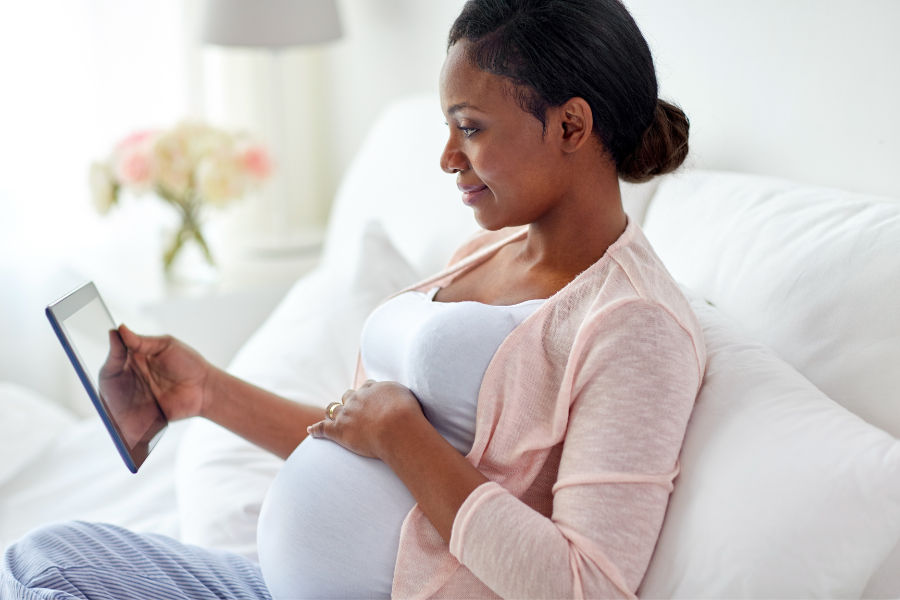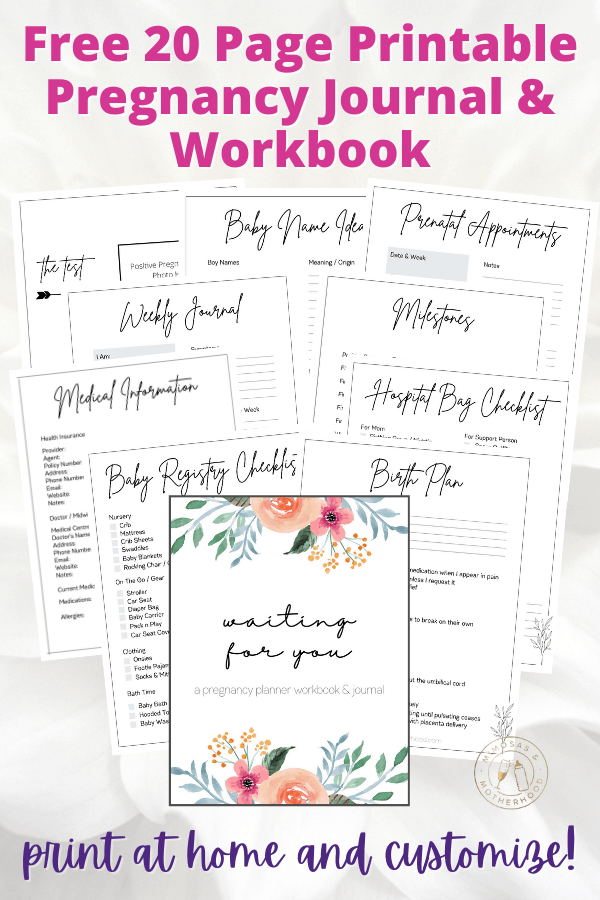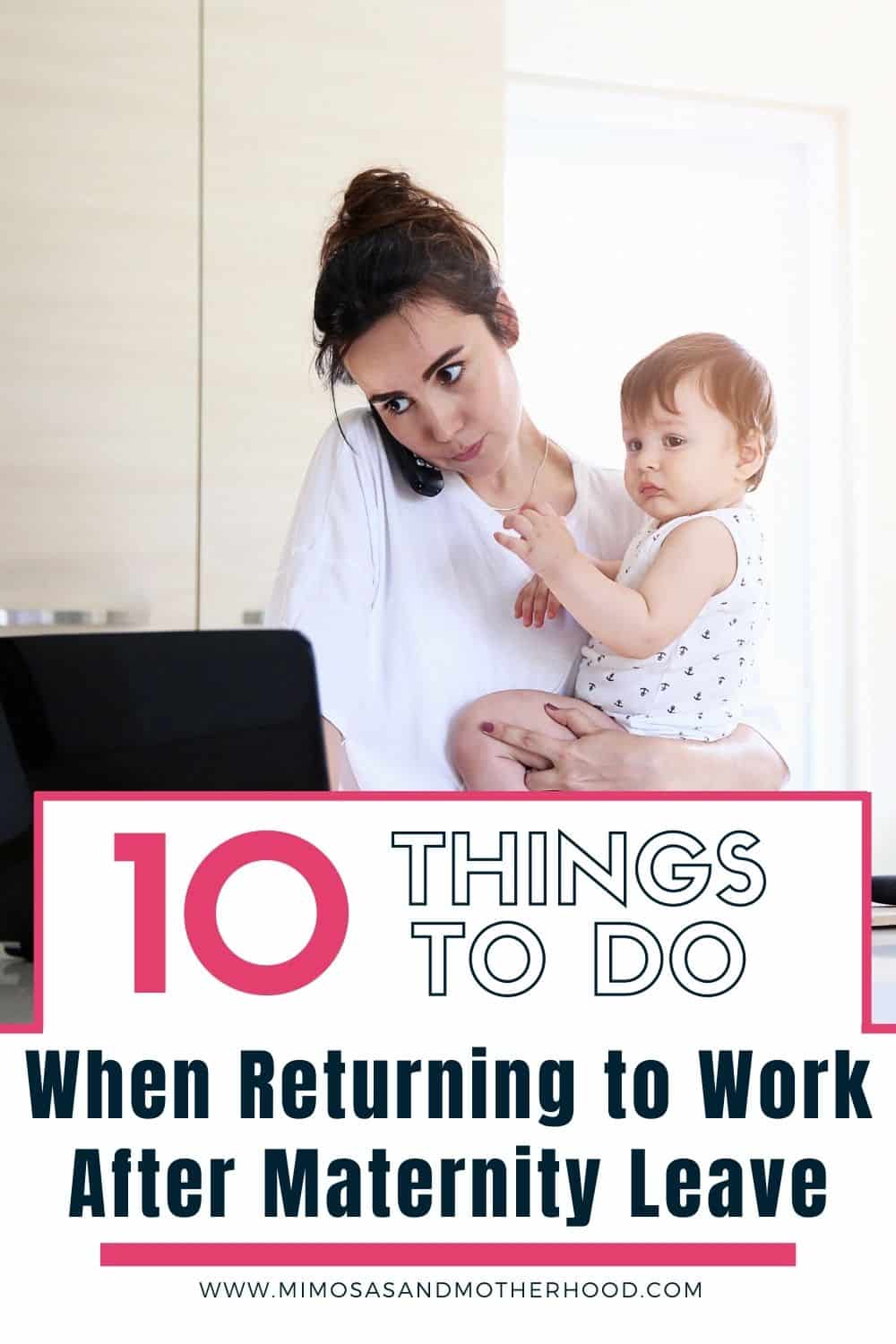How Many Weeks is Halfway Through Pregnancy?
Congratulations on your pregnancy! Things can feel a bit confusing and overwhelming, even for experienced mamas. Wondering how many weeks is halfway through pregnancy? Read on!

Pregnancy is full of so many milestones, emotions and questions. I’m currently pregnant with our third child, and even as an experienced mama I find new things popping up that I’m not so sure on either.
One of the biggest questions I’ve heard from first time moms is around how many weeks pregnant equals how many months, halfway there, second trimester, third trimester etc. It can be confusing to figure out how those weekly countdowns translate into how pregnant you are!
The generally accepted rule is that pregnancy lasts for 40 weeks, or 280 days. The countdown to the end of your pregnancy begins on the first day of your last menstrual cycle. For most women, this is about 2 weeks before you ovulate.
However, not every woman is the same! Some women consider 38 weeks to be full term, while others (like me) consider it to be 42 weeks because I’m a “long gestature” (I wish I was kidding! Both of my boys came way after their due date. If you’re curious, you can read their stories here and here.)
So, how many weeks is halfway through pregnancy? Most women consider 20 weeks pregnant to be halfway through their pregnancy.
Note: Some links may be affiliate links. That means I may make a commission if you use my links to purchase, at no extra added cost to you! I only recommend products that I personally love and believe in. This article is not designed to serve as medical advice. Full disclaimer here.

How many weeks pregnant am I?
In order to know when you’re halfway through your pregnancy, you have to first know when you became pregnant! There are two ways to figure this out: counting from the first day of your last period, or the date conception happened.
Counting From the First Day of Your Last Menstrual Period
Many women aren’t 100% sure of the date of conception, which is why most medical professionals will ask for the first day of your last period when you come in for your first appointment.
This tends to be a good indicator of a due date, as most women ovulate two weeks after their period starts.
It’s simple to determine how many weeks pregnant you are by using the first day of your last period. Just take out a calendar and count the number of days since your last period started, and then divide that number by 7 for the number of weeks pregnant you are.
Counting From the Date of Conception
Are you tracking your ovulation, or keeping track of when you’re having sex? You can use this information to estimate when conception happened!
Just count back 14 days from either the date you ovulated or the date you had sex during that window and divide that number by 7.
What if I have irregular periods?
If you know the first day of your last period, but don’t know the date you ovulated and have irregular periods, it can be hard to pinpoint a due date on your own. Your healthcare provider will give you an estimated due date, or EDD, at your first appointment based on their experience and the information you provide.
For some women this might include an ultrasound to check the size of your baby, which takes place between 8 and 12 weeks. You can use this estimated due date to calculate how many weeks pregnant you are too.
Be sure to book an appointment with your OBGYN or midwife as soon as you suspect that you’re pregnant to confirm your due date and pregnancy, as well as schedule your future prenatal visits.

So, How Many Weeks Is Halfway Through Pregnancy?
Halfway through pregnancy is usually considered to be 20 weeks pregnant. Your baby is about the size of a cantaloupe or grapefruit and covered in fine hair called lanugo, and his eyes can now open and close.
You’re firmly in the second trimester, which usually means you can say goodbye to morning sickness and many of the other first trimester pregnancy symptoms, and get ready for some new milestones, like:
- Feeling the baby move and kick
- Starting to show (or officially pop)
- Learning the sex of your baby
Feeling The Baby Kick
During the second trimester is when you’ll start feeling your baby move, which is one of the most exciting parts of pregnancy for many moms to be.
For first-time mothers, these first flutters in your tummy (also called “quickening”) typically starts between 18-20 weeks below your belly button. If it’s your second time (or more), you might feel these movements even earlier.
Most pregnant women describe those first movements as feeling like popcorn popping, flutters, butterflies or even tummy rumbles.
20 weeks pregnant and haven’t felt baby yet? Don’t panic! Many things can impact your ability to feel your baby move by halfway through pregnancy. Be sure to talk to your doctor if you’re worried.

Starting To Show
Curious about the term “popping?” It means exactly what you think: that your pregnant belly has started to noticeably pop out!
Depending on your pre-pregnancy body, what pregnancy this is for you and how large your baby is, you might show earlier or later than other women. For my first pregnancy I didn’t have a noticeable bump until 18 weeks. With my second baby it was closer to 14. With my third? That bump was out and proud by 10 weeks!
With the changes in your body also comes changes in your prenatal appointment. Around 20 weeks your doctor will start measuring fundal height to track baby’s growth. This measurement from the bottom of your uterus to the top of the uterus gives your doctor an easy, pretty accurate way to keep an eye on your growing baby without having to do unnecessary ultrasounds.
It’s also during the second trimester that most women start to see more weight gain. Some women might be struggling to get the right nutrition, so be sure you’re incorporate breakfast ideas for pregnancy that include lots of protein and vitamins.
Worried about stretch marks? Check out this post for tips on how to help avoid them (as well as treat them if you end up getting them).

Learning The Gender
If you didn’t opt for a blood test earlier in your pregnancy to determine gender of your baby, you can find out at your anatomy scan, which takes place between 20 weeks to 22 weeks pregnant.
This ultrasound will most likely be the longest and most detailed one of your pregnancy, as your doctor is not only checking out your baby’s sex, but also looking at every inch of his anatomy for any abnormalities or areas of concern and the general health of the fetus.
I truly love this ultrasound every time, as it’s all about fetal development! You get an extra-long opportunity to see your baby’s facial features while the ultrasound technician views his major organs (like the brain, lungs and baby’s heart and fetal heartbeat), baby’s spinal cord and baby’s digestive system, his blood vessels, the level of amniotic fluid, umbilical cord and more. Your doctor will also check your cervix to make sure it’s closed.
Don’t want to learn the sex of the baby? Be sure you let your healthcare provider know that before they start the ultrasound scan.
You might also enjoy these pregnancy posts:
How to Relieve Pelvic Pain During Pregnancy
Surviving the last 10 weeks of pregnancy
Free Printable Pregnancy Planner Workbook and Journal
Halfway Through Pregnancy Announcement Ideas
Reaching the 20 week mark is a BIG milestone! Why not mark the occasion in a fun way with some photos?
Here’s two pictures of me, one from my 2nd pregnancy and one from my third!

20 Weeks Pregnant To-Do List
Now that you’ve reached the halfway point in your pregnancy, you should also feel an increase in your energy level (woohoo)! Halfway through pregnancy also means that you are now closer to meeting your baby! Now is the perfect time to start thinking about what to do to prepare before baby arrives.
This is a good time to add a few things to your list:
- If you haven’t already, sign up for childbirth education classes. Your local hospital or healthcare provider will have recommendations for in-person classes in your area. If you’re looking for a great online option, check out this virtual class that I personally took during my second pregnancy.
- Have another child (or fur babies)? Figure out your childcare plans for when you go into labor!
- Create your baby registry! This article has a great comparison of the different major baby registries and the pros and cons of each. You want to be sure you have this done with plenty of time before you baby shower!
- Start working on your birth plan and packing your hospital bag.
- Decide about a doula. Click here to learn more about their role and if you might want to add one to your own birth team.
- Determine whether you would like to try to breastfeed when baby arrives. Here are some helpful tips as you make your decision, and some breastfeeding essentials you will want to add to your baby registry too!
- Pick your baby’s name! Need some inspiration?

Don’t forget to keep taking your prenatal vitamins. Soon your prenatal appointments will start taking place more often. Be sure to tell your healthcare provider if you experience any concerning symptoms, such as shortness of breath or lower back pain.
Be sure to also reach out to them if you have any concerns about your baby. That’s what they’re there for, and they will be happy to check on things for you. Give yourself grace, try to rest, and enjoy the rest of the pregnancy as much as you can. It’s such a special time! Before you know it, you’ll be holding your new baby in your arms.







